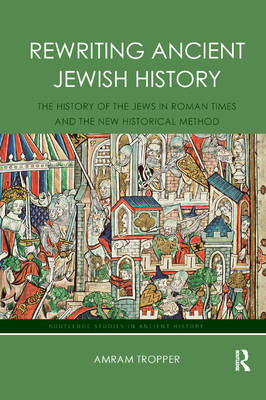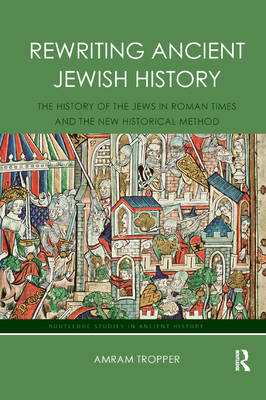
- Retrait gratuit dans votre magasin Club
- 7.000.000 titres dans notre catalogue
- Payer en toute sécurité
- Toujours un magasin près de chez vous
- Retrait gratuit dans votre magasin Club
- 7.000.0000 titres dans notre catalogue
- Payer en toute sécurité
- Toujours un magasin près de chez vous
Rewriting Ancient Jewish History
The History of the Jews in Roman Times and the New Historical Method
Amram TropperDescription
Half a century ago, the primary contours of the history of the Jews in Roman times were not subject to much debate. This standard account collapsed, however, when a handful of insights undermined the traditional historical method, the method long enlisted by historians for eliciting facts from sources. In response to these insights, a new historical method gradually emerged. Rewriting Ancient Jewish History critiques the traditional historical method and makes a case for the new one, illustrating how to write anew ancient Jewish history.
At the heart of the traditional historical method lie three fundamental presumptions. The traditional historical method regularly presumes that multiple versions of a text or tradition are equally authentic; it presumes that many ancient Jewish sources are the products of largely immanent forces of cloistered Jewish communities; and, barring any local grounds for suspicion, it presumes that most ancient Jewish texts faithfully reflect their sources and reliably recount events. Rewriting Ancient Jewish History unfurls the failings of this approach; it promotes the new historical method which circumvents the flawed traditional presumptions while plotting anew the limits of rational argumentation in historical inquiry. This crucial reappraisal is a must-read for students of Jewish and Roman history alike, and a fascinating case-study in how historians should approach their ancient sources.
Spécifications
Parties prenantes
- Auteur(s) :
- Editeur:
Contenu
- Nombre de pages :
- 228
- Langue:
- Anglais
- Collection :
Caractéristiques
- EAN:
- 9780367877095
- Date de parution :
- 12-12-19
- Format:
- Livre broché
- Format numérique:
- Trade paperback (VS)
- Dimensions :
- 156 mm x 234 mm
- Poids :
- 326 g

Les avis
Nous publions uniquement les avis qui respectent les conditions requises. Consultez nos conditions pour les avis.






